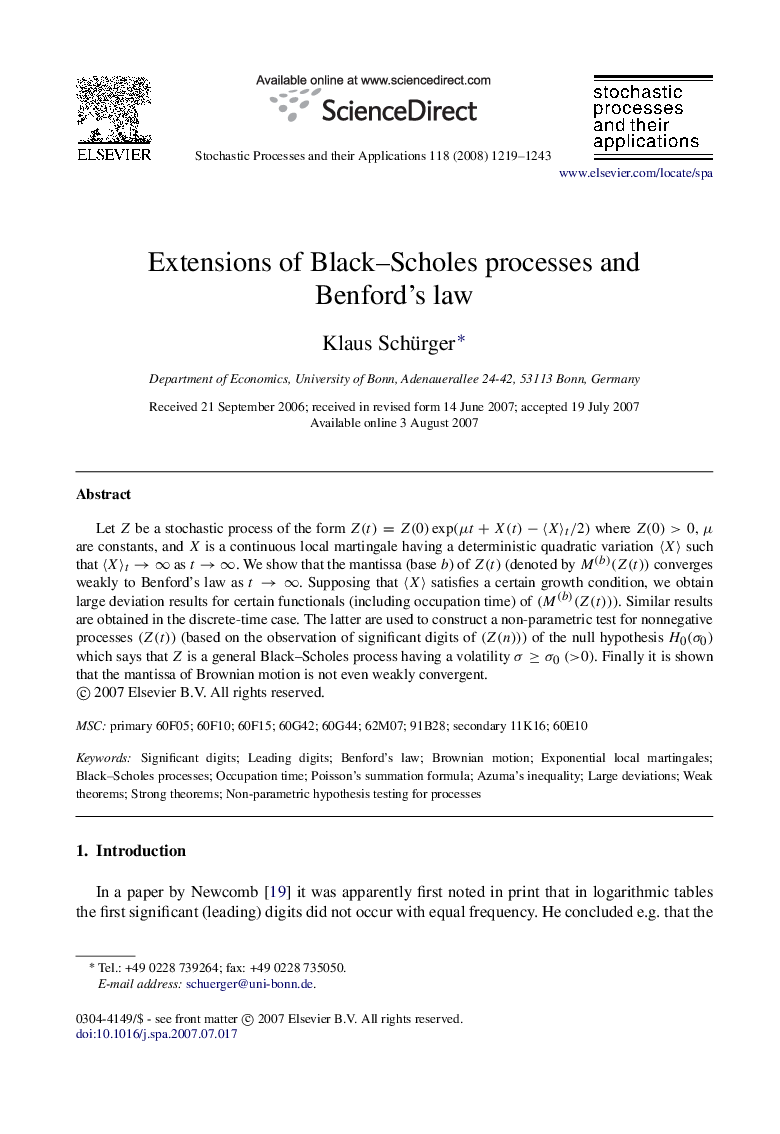| Article ID | Journal | Published Year | Pages | File Type |
|---|---|---|---|---|
| 1156995 | Stochastic Processes and their Applications | 2008 | 25 Pages |
Let ZZ be a stochastic process of the form Z(t)=Z(0)exp(μt+X(t)−〈X〉t/2)Z(t)=Z(0)exp(μt+X(t)−〈X〉t/2) where Z(0)>0Z(0)>0, μμ are constants, and XX is a continuous local martingale having a deterministic quadratic variation 〈X〉〈X〉 such that 〈X〉t→∞〈X〉t→∞ as t→∞t→∞. We show that the mantissa (base bb) of Z(t)Z(t) (denoted by M(b)(Z(t))M(b)(Z(t)) converges weakly to Benford’s law as t→∞t→∞. Supposing that 〈X〉〈X〉 satisfies a certain growth condition, we obtain large deviation results for certain functionals (including occupation time) of (M(b)(Z(t)))(M(b)(Z(t))). Similar results are obtained in the discrete-time case. The latter are used to construct a non-parametric test for nonnegative processes (Z(t))(Z(t)) (based on the observation of significant digits of (Z(n))(Z(n))) of the null hypothesis H0(σ0)H0(σ0) which says that ZZ is a general Black–Scholes process having a volatility σ≥σ0(>0). Finally it is shown that the mantissa of Brownian motion is not even weakly convergent.
